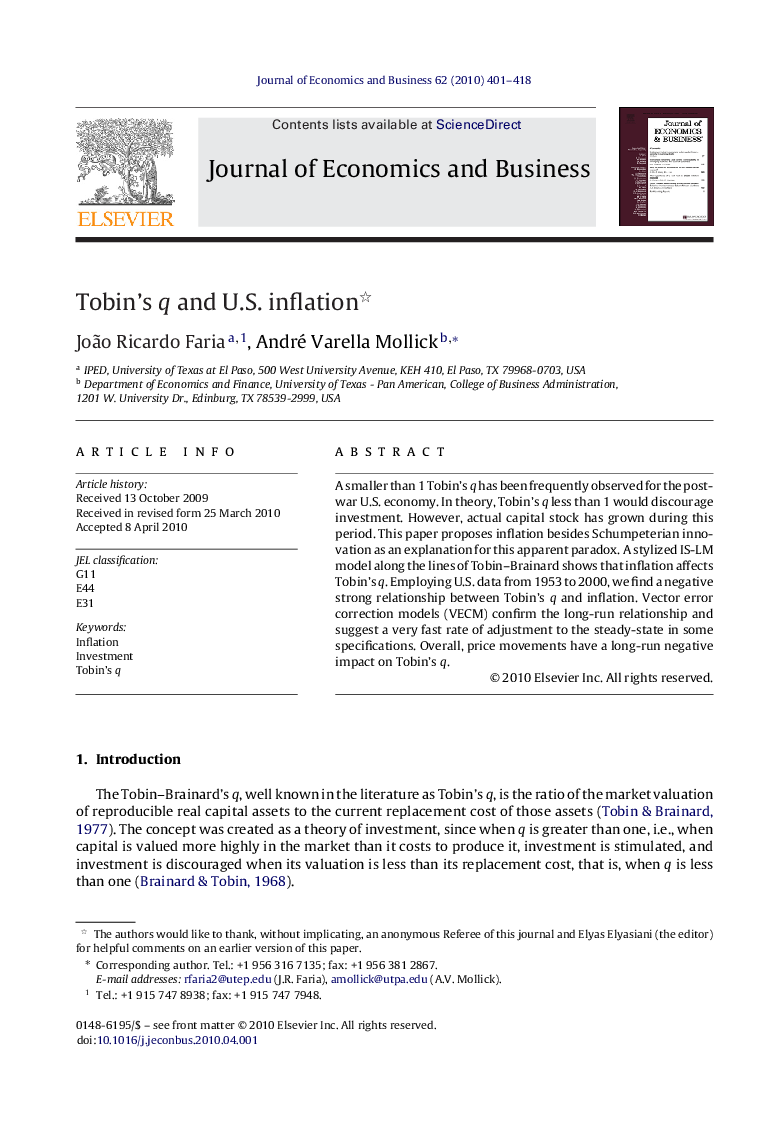| Article ID | Journal | Published Year | Pages | File Type |
|---|---|---|---|---|
| 957938 | Journal of Economics and Business | 2010 | 18 Pages |
A smaller than 1 Tobin's q has been frequently observed for the postwar U.S. economy. In theory, Tobin's q less than 1 would discourage investment. However, actual capital stock has grown during this period. This paper proposes inflation besides Schumpeterian innovation as an explanation for this apparent paradox. A stylized IS-LM model along the lines of Tobin–Brainard shows that inflation affects Tobin's q. Employing U.S. data from 1953 to 2000, we find a negative strong relationship between Tobin's q and inflation. Vector error correction models (VECM) confirm the long-run relationship and suggest a very fast rate of adjustment to the steady-state in some specifications. Overall, price movements have a long-run negative impact on Tobin's q.
